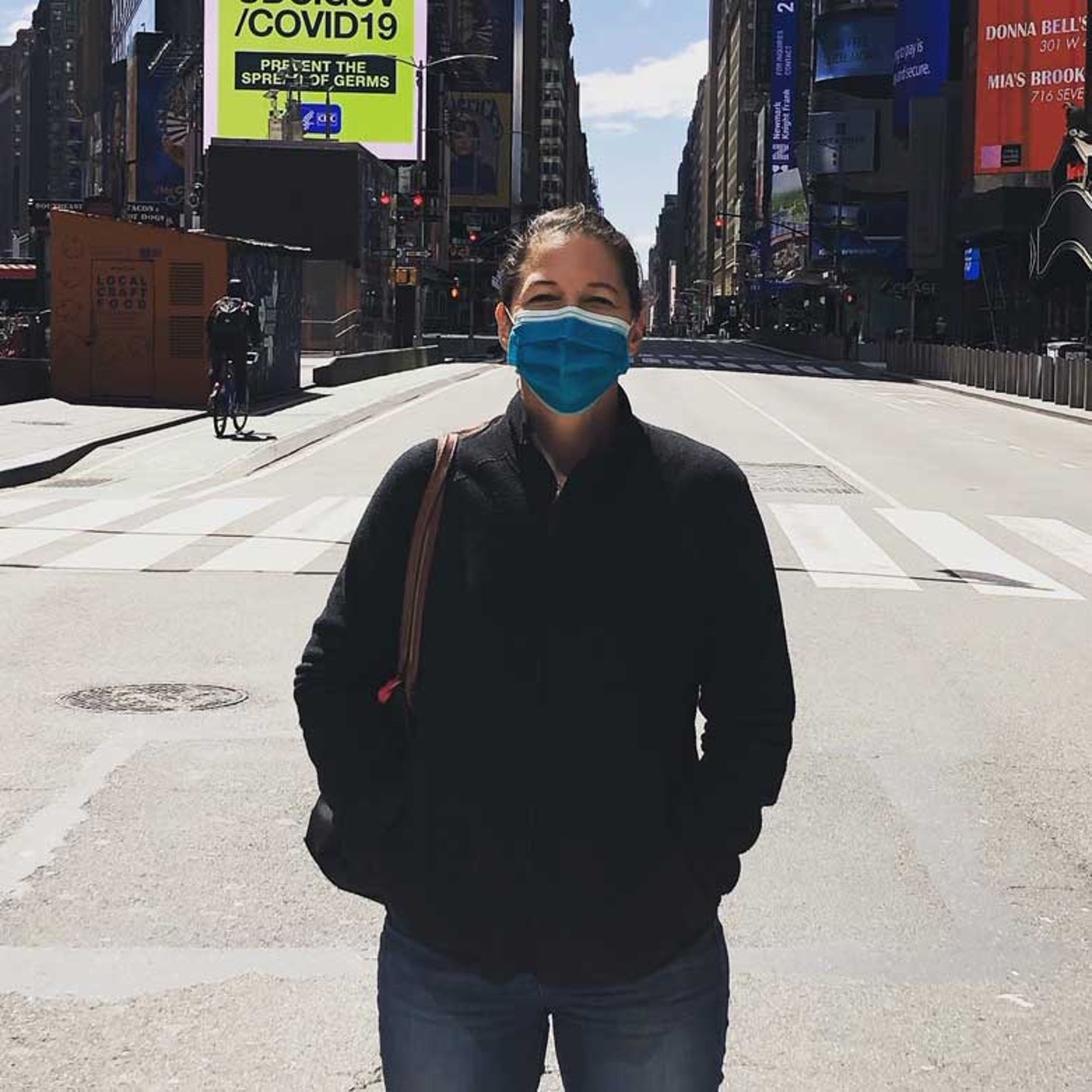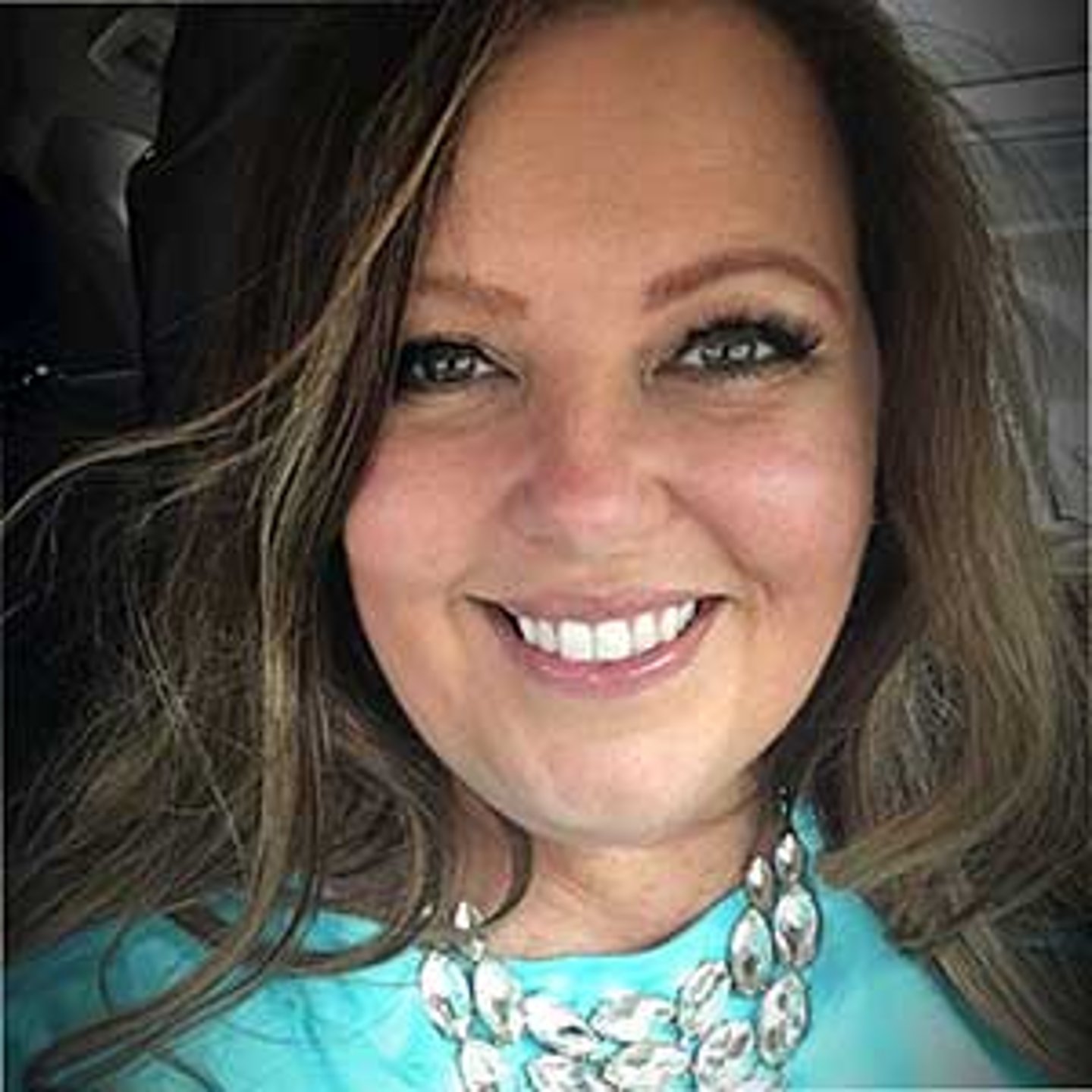Heroes of the Industry: Saluting front-line workers
The definition of a hero: A person who is admired or idealized for courage, outstanding achievements or noble qualities.
That seems to fit perfectly for the thousands of retail workers, who have literally put their lives on the line to make sure consumers had access to the food and medical supplies they needed during the COVID-19 pandemic that has ravaged not only this country, but most of the world.
This may be remembered as retail’s finest moment. As worried consumers rushed to stores for everything from toilet paper to cough-cold products, not to mention their much-needed prescriptions, employees at mass retail chains across the country rose to the occasion.
What did they do? For one thing, they showed up for work, leaving the safety of their homes and their families to make sure that the stores, distribution centers and other facilities they worked in were fully staffed. For another, many did more than was required of them, working long hours stocking shelves and filling their warehouses, talking impatient and, at times, panicked customers off the ledge, and, sometimes just giving shoppers the correct information during a time of need.
Drug Store News wishes we could interview them all. Obviously, we can’t. So instead, here are some exploits from our Retail Heroes. In the end, it is just a small example of what has gone on and is still going on at retail.
Here’s what they’ve done:
Melinda Dolack
The Little Clinic, Kroger, Louisville, Ky.
Melinda Dolack does not see anything special in what she did for the entire month of April. Hundreds, if not thousands, of people in New York would probably disagree.
Dolack, an APRN and the manager at Kroger’s Holiday Manor Little Clinic in Louisville, Ky., decided that she had to go to New York in late March to help out any way she could. So, along with a colleague from nursing school, she applied to help, and both were accepted in just one day. On April 1, she took her first trip to the Big Apple, looking to help in any way she could.
“We were not getting a lot of patients at the Little Clinic because people were afraid to come in,” she said from her home in Louisville, where, despite testing negative for the virus, she was still under quarantine. “So, we thought we could help elsewhere. We knew that New York was so short of nurses and pleading for help.”
Dolack was placed at Bellevue Hospital, the oldest public hospital in the country and smack in the middle of Manhattan. She was placed with the infectious disease team and assigned, in part, to helping test for the COVID-19 virus. She also did countless other duties. Needless to say, it was at least 12-hour days, seven days a week.
“We signed up for 21 days of 12-hour shifts and we were exhausted throughout the entire trip,” she said. “But, in the end, we extended our term for seven more days and did not get home until May 1.”
Her job at Kroger will be waiting for her when she is out of isolation.
“I would do it all over again,” she said. “It was totally exhausting, but extremely rewarding. I met amazing patients and amazing staffers, and every person I met in New York was just so gracious. I really don’t think I did anything exceptional. As a nurse, I was born and bred to help. I just did my normal job in another state of this country.”
Will she go back to New York again? “We got a chance to visit Central Park and go to an empty Times Square,” she said. “I thought that Louisville had a big downtown, but New York just completely blows that away. I can’t wait to go back and see the city in all its splendor.”
J Gilliam
Walgreens, Grandville, Mich.
Two months ago, giving a customer a container of sanitizing wipes might not have been a memorable interaction. For J Gilliam, store manager at Walgreens store 7160 in Grandville, Mich., who gave a pack of wipes she had bought earlier that day to a woman caring for her husband recovering from a heart transplant, the small act of kindness made a big impact.
That is par for the course for workers on the front lines at Walgreens who had to pivot quickly to support their communities in navigating the pandemic. Gilliam said that the institutional support from Walgreens, including hand sanitizing stations and allowing employees extra time to clean, among other policies, have enabled workers to be prepared to help customers.
“A lot of people are just scared and being scared translates into emotion — sometimes into fighting in front of us, and sometimes crying,” Gilliam said. “And, we just have to be there to support them — sometimes just to listen, sometimes to make an accommodation.”
Besides herself, Gilliam also said that she has seen other members of her team opt out of buying essential items that are set aside for employees in order to make them available to customers.
In addition to helping customers get through the pandemic, Gilliam said that there has been a feeling of stronger camaraderie among store associates — something she said was palpable before she began her career with the chain five years ago, and has only grown stronger over the past months.
“Before I even worked at Walgreens, I shopped at Walgreens, and employees talked about being a family, and people say that sometimes in businesses, but it has never been truer than right now because we’re with each other more than our families,” Gilliam said, noting that safety precautions prevent them from seeing extended families, but that the support of colleagues keep the staff going. “We may have a bad day, but the rest of the team lifts us up. And when we do that, that feeling — there is an indescribable something special about Walgreens team members, and I think it’s because they feel like a family, and we choose to lift each other up.”
Gilliam said that in addition to in-store uplift, she also runs a Walgreens fan page on Facebook that has seen an outpouring of positivity, both from Walgreens employees and consumers. “Moments like this, whenever you’re in crisis, it can bring out the best or the worst in people,” Gilliam said. “And I’m so thankful that it brought out the best in Walgreens.”
Jennifer Brucculeri
Rite Aid, Brooklyn, N.Y.
As the coronavirus pandemic set in, New York City quickly became the domestic epicenter of the outbreak. As of May 2, the city had seen 170,534 confirmed cases of COVID-19. Leading the city in terms of overall cases was the borough of Queens, with more than 52,000 cases, followed by Brooklyn with 45,341. For Rite Aid, the response in two of the city’s boroughs has been led by a 15-year company veteran and New Yorker who is no stranger to navigating tough situations.
Brooklyn native Jennifer Brucculeri, a regional pharmacy leader at Rite Aid who oversees 19 stores in Brooklyn and Staten Island, has played a key role in the retailer’s response in the two boroughs, ensuring that communities can still look to Rite Aid as a resource. A principal responsibility for doing so, she said, is managing personnel.
“The biggest focus has been ensuring that my team is healthy and safe, and able to be at the pharmacy each day to service the community,” Brucculeri said. “We continue to take measures to help associates stay healthy, so we can be there for our customers and the communities, such as additional cleaning, sanitizing and providing personal protective equipment.”
She said that a big part of doing so is working with colleagues, who are themselves seeing the impact of the pandemic — particularly among associates with children, who are now attending school remotely. The solution has been increased communication and cooperation to make sure schedules can work for associates.
Though Brucculeri admits the job has been difficult given the sheer scope of the pandemic and its outsized impact on New York City, she said that she and her colleagues have helped New Yorkers navigate crises in the past, which has prepared them well.
“As a healthcare professional, this is just part of the job,” Brucculeri said. “This isn’t the first crisis I or my team has been through, and it’s not the first we’ve been through together. Many of my associates and I have actually worked through Superstorm Sandy together, as well.”
“As a regional pharmacy leader, watching the amazing pharmacists that work for Rite Aid each day gives me the courage to get out there and join them,” she said. “We win through teamwork, and that makes us strong enough to be there for our patients through the most difficult times.”
Ultimately, what she said drives her efforts — and Rite Aid’s response more broadly — has been ensuring that its stores, and its pharmacies in particular, are still a healthcare resource for its communities.
“Pharmacists are the most easily accessed accessible healthcare professionals. And no matter what the crisis, we can’t allow that to change, and we need to be there,” she said. “People are used to coming to see us, and your local community pharmacist is always there for you and knows your needs because you’re seeing them very often throughout the year.
Purvi Patel
Safeway Pharmacy, Portland, Ore.
When a mother of a 2-year-old girl walked into Safeway Pharmacy in Portland, Ore., to get an antibiotic for herself and her sick daughter during the COVID-19 pandemic, pharmacist Purvi Patel was busy filling prescriptions. Yet, she took the time to look up and notice that the mom was extremely exhausted and could hardly walk.
After filling the mom’s prescription, Patel found that the young child’s insurance had expired. Although Patel used a prescription discount card to reduce the cost of her medicine to $14, the mother started to cry. She told Patel that she had lost her job a few days before, and only had $7.
“That really hit me hard because I’m a mother of two boys. I felt so much of her pain,” Patel said. “We are in such a bad situation right now. She felt so hopeless.”
Patel, who is working extra hours to increase her income because of the pandemic’s impact on her husband’s business, paid for the child’s medicine. She and the pharmacy’s technicians chipped in to buy a $25 gift card for the woman.
Patel recalled that the mother was extremely happy to receive this financial help. “I could see the stress in her that we all have now. I know the $25 won’t go far. Maybe it will be good for one day, but we wanted to help her so she doesn’t have to worry for at least one day,” Patel said.
Although retail pharmacists are feeling stress, Patel said, “I can’t imagine how bad it is for hospital pharmacists. I have volunteered to help in the hospital if they need me. I would love to help in any way I can.”
Al Gentile
St. George Pharmacy, Staten Island, N.Y.
Al Gentile, owner and head pharmacist of St. George Pharmacy, a Good Neighbor Pharmacy in Staten Island, N.Y., is no stranger to assisting his community through times of adversity.
Located just a few blocks from Staten Island’s ferry terminal to Manhattan, St. George Pharmacy was on the front lines during 9/11, when the community lost nearly 300 people. Similarly, the pharmacy remained open for the community in the days following Hurricane Sandy to provide first-aid supplies to triage locations and supply community members with batteries, flashlights and appropriate medication. These events have provided Gentile with the experience to navigate the coronavirus pandemic.
“We have always stayed open despite upheaval,” Gentile said. “We think it’s important to show our community that we are there for them, particularly in times of great need.”
Since most Staten Islanders, who typically work in Manhattan, are now working remotely, the pharmacy has been serving more patients than ever before.
Gentile is ensuring the health and safety of the staff and patients by taking proper precautions necessary to prevent the spread of COVID-19. From filling a prescription to delivering personal care needs, St. George Pharmacy stands as a symbol of resiliency.
“We need to be there for them,” Gentile said. “This is an important reminder that we’ll get through this, and we’ll get through it together.”
Hashim Zaibak
Hayat Pharmacy, a Health Mart Pharmacy, Milwaukee, Wis.
Three-thousand two hundred.
That’s the number of masks that Hashim Zaibak, owner of Milwaukee-based Hayat Pharmacy, a Health Mart pharmacy, gave to the public for free in one day. What’s more, the pharmacy brought the items to people who were waiting in their cars.
“When the pandemic started, there was a lot of news and uncertainty. A lot of things like gloves, masks and hand sanitizer were out of stock. We were busy contacting vendors, who were able to get us some of those products. We got a shipment of 3,200 masks and many gloves the same week that the guidelines came out for people to start wearing masks when they go out in public,” Zaibak said.
Zaibak recalled how happy the people in his community were to receive the much-needed items. “Yesterday, we received a card from the police department saying, ‘Thank you for doing this for the community,’” Zaibak said.
Zaibak, who is the majority owner of 17 Health Mart pharmacies, most of which are located in the inner city of Milwaukee, also has hired more drivers and bought two new cars to be able to sustain the increase from 50% to 90% of home deliveries of prescriptions.
“The zip codes, where our pharmacies are located, have the most COVID-19 cases in the state of Wisconsin. That community is very underserved,” he said. “Obviously, we are all soldiers in this battle. And we all do our little things. As a pharmacy, we can do certain things to fight this big battle. We felt it was important to help the community,” he said.
Hayat Pharmacy also is reaching out to a large population of non-English speaking Rohingya immigrants in the community by posting a video in their language on precautions to take to prevent COVID-19. The video, which is posted on the pharmacy’s social media page and on YouTube, has received hundreds of views within a short period of time.
The pharmacy also has technicians who can translate COVID-19 information into other languages, such as Spanish, Polish, Arabic and Somali.
Zaibak, who recently received another shipment of masks and gloves, said, “We’re thinking of doing it again. This is a way of paying back to the community. We have a duty and an obligation to serve the underserved.”
Young Tran
Bartell Drugs, Des Moines, Wash.
Young Tran, pharmacy manager at Bartell Drugs in Redondo, Wash., has a binder in which she keeps track of senior patients who are 65 years old and older. With about 200 patients, one can only imagine how arduous a task it would be to call each patient during the pandemic to see if they are healthy, and to find out if they are running out of their medications.
However, Tran does not give it a second thought about going the extra mile.
In fact, Tran even comes to work early before the pharmacy opens to consult with patients. “I tell them, ‘Come in at 8:30 before we open. No one is here. You’ll be in and out.’ Making those special arrangements has helped,” Tran said.
Tran also can be seen bringing medications to patients waiting in their cars, as she did for a woman in her 80s who is caring for her husband with Alzheimer’s disease. “I go to their car, grab their list of pharmacy and convenience items, go back into the pharmacy to shop, and bring the items out,” Tran said. “Many of these patients don’t have children or grandchildren around to help. During this time, it really helps when you have someone who can go out for you. It’s safer than going around and trying to find things in the store.”
Tran also ensures that patients who rely on Bartell Drugs for specialty medications get their medications in a timely manner. “I have reminders to call patients to fill their prescriptions five days early, so that the medications can get shipped out to them in time,” she said.
Finally, Tran said, “My job is not only as a pharmacist, but also a doctor, a friend and a person they can trust. They tell me everything, even about their financial issues. I do come in very early and stay later because I want to help patients and the community. What’s nice is we’ve been getting patients calling and saying, ‘Thank you,’ and sending lunches. They notice your hard work,” she said.
Erica Hoffner
Thrifty White Pharmacy, Grand Forks, N.D.
Erica Hoffner, pharmacy manager at Thrifty White in Grand Forks, N.D., already had built a specialty program at the pharmacy before the pandemic hit. This has enabled her to be on the front lines during the pandemic, helping patients who are on long-
acting antipsychotic medications to continue their regimen.
“It’s very important for us to help patients continue on their maintenance medications. We also have partnered with a clinic,” Hoffner said. “If they have to close due to the pandemic, they can count on us to give their patients their long-acting antipsychotic medications here.”
Hoffner said that Thrifty White’s specialty pharmacy sends the injections, along with PPE for her protection. “We make sure we have the injection ready, and then we escort the patient into our counseling room and keep the contact minimal. The room is sanitized before the patient comes and after the patient leaves,” she said.
Hoffner recalled how many of her patients visited her on a daily basis prior to the pandemic. One male patient, who has a mental health issue, is no longer stopping by to say hello, but Hoffner said, “We are still talking, whether by text message or a phone call, so that he knows we are still there for him in case he needs something. We have a lot of people who have a lot of different chronic conditions. We try to help keep some of those routines and to maintain some consistency, so that people can still have some normalcy in their day-to-day life, since everyone’s life is upside down now.”
Hoffner is humble about stepping up her efforts during the pandemic. “I couldn’t do this without my staff. They put their heart and soul into helping patients,” she said.
Grace Dahlen
Mills Civic Hy-Vee pharmacy, West Des Moines, Iowa
If you walk into Mills Civic Hy-Vee pharmacy in West Des Moines, Iowa and hear pharmacy intern Grace Dahlen chatting on the phone with a 95-year-old woman, you would think she’s talking to her grandmother.
Yet Dahlen, who has been working at Hy-Vee for two and a half years, is chatting with a nursing home resident, who is lonely because she is not allowed any visitors during the pandemic.
Dahlen said that she and one of Hy-Vee’s pharmacists deliver medications frequently to the nursing home down the street where the woman resides.
“We deliver to about 50 patients. They were in lockdown, so I made a list with their phone numbers,” Dahlen said. “One Friday when we were slower, I called all of them, checking to see how they were doing, and if they needed any medications, OTCs or grocery items. We sent those items out.”
Dahlen said all of the residents are happy to get the call, but especially the 95-year-old woman, who was so excited that she puts the next date for the call on her calendar.
During their chats, Dahlen said the woman talks about when she was younger, how she met her husband, and about her children and grandchildren.
“She always asks what I look like, so I took a picture and sent it to her. She said she put it on her refrigerator and will send a picture of herself. I run through her medications to see if she needs any products. She has three big windows, and one overlooks the gazebo. She counts how many people are outside and lets me know how many were in the gazebo that day. She has someone bring meals every day, and she likes to let me know which meals she likes and dislikes. She told me her grandkids rode their bikes 7 miles to visit her the other day, but they were told they can’t come in to visit anymore.”
It appears that Dahlen and the pharmacy staff also are reaping benefits from the calls with the other residents that they reach out to. “They enjoy being able to have someone looking out for them. It’s a nice way to be able to help these residents,” Dahlen said. “It makes me and everyone in the pharmacy feel that we are making more of an impact since we don’t have as many in-person interactions with patients during this time.”
Drug Store News senior editor Sandra Levy, managing editor David Salazar and editor-in-chief Seth Mendelson contributed to this article.











